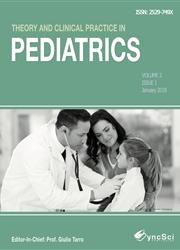Sleep as a mediator in the context of emotional problems in adolescents with IBD: A pilot study
引用次数: 0
Abstract
Background: Sleep has an impact on daily life. Particularly among adolescents with IBD, adequate sleep seems to be important, as the disease itself and the associated symptoms can cause distress and impair daytime functioning. However, often parental and youth reports differ regarding perceived sleep problems of adolescents. Besides sleep problems, depression and anxiety are often prominent in young IBD patients. To date, the interplay between sleep, anxiety/depression symptoms and IBD is not fully understood. Therefore, the aim of this study was to (1) evaluate sleep problems in adolescents suffering from IBD, (2) compare adolescents’ sleep quality and impairments according to self- and parental reports, and (3) investigate the interaction between IBD symptomatology, emotional problems and sleep disturbances. Methods: 29 adolescents (age 10 - 22; M = 14.44 , SD = 1.78 ) with IBD and their parents took part in the study. Adolescents and parents completed questionnaires concerning sleep, emotional problems, and IBD symptomatology. Results: Especially overtiredness, insomnia symptoms, and nightmares play a prominent role regarding sleep problems in youths. Self-rated sleep problems and parental ratings were inconsistent, particularly for nightmares (Z = -2.12; p = .034). However, other ratings concerning emotional problems and sleep, especially anxiety and nightmares, were significantly related(r = .426, p = .034), even though we found no mediation effect for the association between IBD, nightmares and anxiety. Discussion: The present study revealed the importance of sleep and emotional well-being for adolescents suffering from IBD. Moreover, it became clear that the role of anxiety in youths suffering from IBD and sleep problems is not sufficiently answered yet. Not only emotional behavior but also sleep should be addressed when diagnosing IBD or during treatment of IBD. In addition, these results show the need for further investigation regarding the differences between parental and self-reports concerning sleep problems in young IBD patients.睡眠在IBD青少年情绪问题中的中介作用:一项初步研究
背景:睡眠对日常生活有影响。特别是在患有IBD的青少年中,充足的睡眠似乎很重要,因为这种疾病本身及其相关症状会导致痛苦并损害白天的功能。然而,父母和青少年对青少年睡眠问题的看法往往不同。除了睡眠问题,抑郁和焦虑在年轻IBD患者中也很突出。迄今为止,睡眠、焦虑/抑郁症状和IBD之间的相互作用尚未完全了解。因此,本研究的目的是(1)评估IBD青少年的睡眠问题,(2)根据自我报告和父母报告比较青少年的睡眠质量和损害情况,(3)调查IBD症状、情绪问题和睡眠障碍之间的相互作用。方法:29名青少年(10 ~ 22岁;M = 14.44, SD = 1.78)的IBD患者及其父母参与了研究。青少年和父母完成了关于睡眠、情绪问题和IBD症状的问卷调查。结果:过度疲劳、失眠、噩梦是青少年睡眠问题的主要原因。自我评定的睡眠问题和父母评定的睡眠问题不一致,尤其是在噩梦方面(Z = -2.12;P = .034)。然而,其他关于情绪问题和睡眠的评分,特别是焦虑和噩梦,显著相关(r = .426, p = .034),尽管我们没有发现IBD、噩梦和焦虑之间的关联有中介作用。讨论:目前的研究揭示了睡眠和情绪健康对患有IBD的青少年的重要性。此外,很明显,焦虑在患有IBD和睡眠问题的年轻人中的作用还没有得到充分的回答。在诊断IBD或治疗IBD时,不仅要注意情绪行为,还要注意睡眠。此外,这些结果表明,需要进一步调查父母和自我报告的关于年轻IBD患者睡眠问题的差异。
本文章由计算机程序翻译,如有差异,请以英文原文为准。
求助全文
约1分钟内获得全文
求助全文

 求助内容:
求助内容: 应助结果提醒方式:
应助结果提醒方式:


